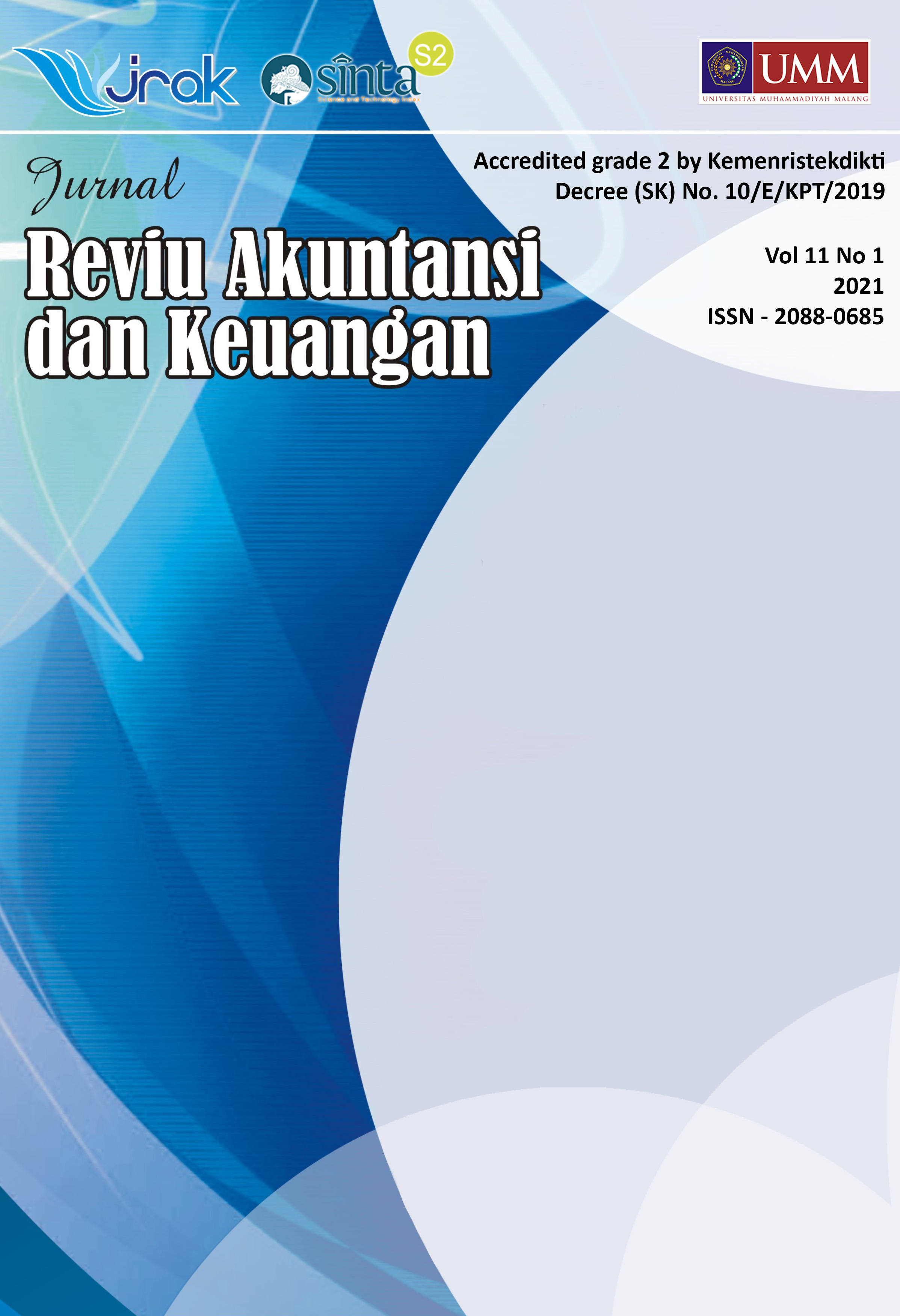The Effect of CEO Tenure, Capital Intensity, and Firm Size On Tax Avoidance
DOI:
https://doi.org/10.22219/jrak.v11i1.16140Abstract
The aim of this study is to examine the effect of CEO tenure, capital intensity, and firm size on tax avoidance. The sample of this study is 88 companies listed in Indonesia Stock Exchange (IDX) in 2019 were selected through purpose sampling. The data analysis technique used in this study is multiple linear regression analysis. The results of the analysis show that CEO tenure has a positive effect on tax avoidance. This means that the longer the CEO tenure will lead to an increase in tax avoidance. Capital intensity and firm size have no effect on tax avoidance. This research has a novelty in the form impact of CEO tenure, capital intensity, and firm size on tax avoidance. Furthermore, the practical contribution to the government, especially the Directorate General of Taxes, is that long tenure of CEO can lead to tax avoidance. The limitation in this study is the number of samples is less representative in representing the population. This is because there are still companies listed on the IDX that not provide information according to the sample criteria.
Downloads
Downloads
Published
Issue
Section
License
Copyright (c) 2021 Evi Khusnita Ulfa, Eny Suprapti, Sri Wahjuni Latifah

This work is licensed under a Creative Commons Attribution 4.0 International License.

Jurnal Reviu Akuntansi dan Keuangan is licensed under a Creative Commons Attribution-NonCommercial-ShareAlike 4.0 International License.
Authors who publish with this journal agree to the following terms:
- Authors retain copyright and grant the journal right of first publication with the work simultaneously licensed under a Creative Commons Attribution-NonCommercial-ShareAlike 4.0 International License that allows others to share the work with an acknowledgement of the work's authorship and initial publication in this journal.
- Authors are able to enter into separate, additional contractual arrangements for the non-exclusive distribution of the journal's published version of the work (e.g., post it to an institutional repository or publish it in a book), with an acknowledgement of its initial publication in this journal.
- Authors are permitted and encouraged to post their work online (e.g., in institutional repositories or on their website) prior to and during the submission process, as it can lead to productive exchanges, as well as earlier and greater citation of published work (See The Effect of Open Access).










